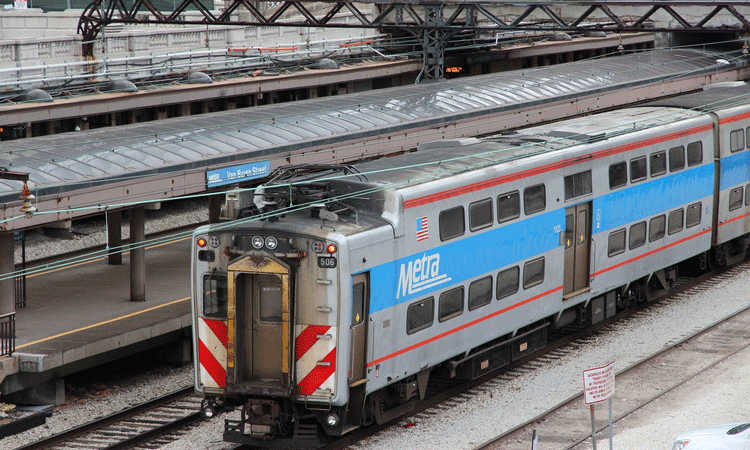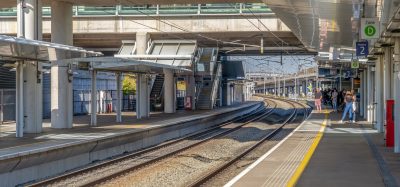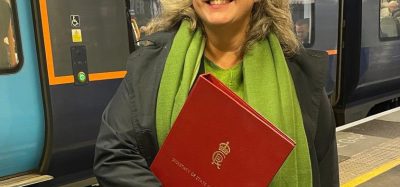U.S commuter rail system announces it will not increase fares in 2020
Posted: 13 September 2019 | Global Railway Review | 1 comment
Due to a new investment programme, which includes the reduction of roughly $21 million in unnecessary expenses, Metra will increase its operating budget to $827 million, negating the need to increase fares.


Metra is the commuter rail system serving the Chicago metropolitan area in the U.S. states of Illinois and Wisconsin, servicing Cook, DuPage, Kane, Lake, McHenry, and Will Counties in northeastern Illinois and the city of Kenosha in southern Wisconsin.
They have announced that fares will not be raised in 2020, the second year in a row that the company has not asked customers to pay more. Furthermore, Metra has also announced that, thanks to the new state capital programme, it will budget $2.6 billion for capital improvements over the next five years, with a priority on railcars, locomotives, stations, bridges and service improvements.
Metra CEO/Executive Director, Jim Derwinski, said: “We are happy to give our customers a double dose of good news this budget season. First, we have been able to keep our operating expenses in check and will not need to raise fares to cover higher operating costs. Second, thanks to Springfield stepping up, we do not need to raise fares for capital needs – in fact, we now have a significant infusion of capital dollars to help us begin to attack our backlog of capital work.”
Metra has identified approximately $5 million in efficiencies in a year review. In addition, it expects to save roughly $7 million by not filling vacancies and about $9 million by reducing overtime and other miscellaneous expenses.
Those $21 million in reductions will help offset an expected $26 million increase in operating expenses in 2020, including approximately $7 million in new operating expenses associated with Positive Train Control (PTC), a federally mandated safety system, and about $19 million in labour and various other operating expenses.
That means that, preliminarily, Metra expects its overall operating budget to increase by $5 million in 2020, from $822 million in 2019 to $827 million. Higher revenues from the regional transportation sales tax, which funds a little more than half of Metra’s operating budget, will cover that $5 million and no fare increase will be needed.
Metra also unveiled a preliminary capital programme that includes nearly $2.6 billion in funding over the next five years, a significant increase from recent years thanks to the new state capital programme. Metra expects to receive roughly $215.5 million in each of the next five years from the sale of state bonds, and an additional $73.8 million a year from ‘Pay Go’ funding tied to a higher state fuel tax, for a total of $1.45 billion in new state money. That money will be added to $962 million in expected federal funding, $145.8 million in expected RTA funding and $26 million in Metra fare revenue devoted to capital needs.
A list of specific projects to be funded by the programme is still being drafted and will be presented when the capital programme is proposed in October 2019. Broadly, however, Metra will prioritise spending on cars and locomotives; stations, including ADA improvements; bridges, including many that are more than 100 years old; and service enhancements.









Interestingly, Derwinski states, “we do not need to raise fares for capital needs.” However, by Illinois statute, fare revenues are not permitted to be used for capital needs. Additionally, Metra policies do not allow capital budget to be used for operating expenses (this is straight from the Metra 2019 Budget Program). Finally, after speaking directly to Derwinski, he stated, “there is no possible way that fare revenue could cover our Capital Expenses.” A direct quote from June 2019. For Derwinksi and the author of this article, don’t try to have anyone believe that Metra is doing commuters any favors by not raising fares. When their trains have no heat, no A/C, no electricity, no working bathrooms, ripped seats, filthy conditions and broken wheelchair lifts, operating expenses aren’t even being covered. All of these problems plus the fact that trains can’t be on-time are contributing to Metra’s declining ridership. You’re not raising fares because you will lose so many riders that you won’t increase revenues at all. Don’t try to paint any picture of Metra other then the disgusting, corrupt mess that Metra truly is. Shut it down, start from scratch.